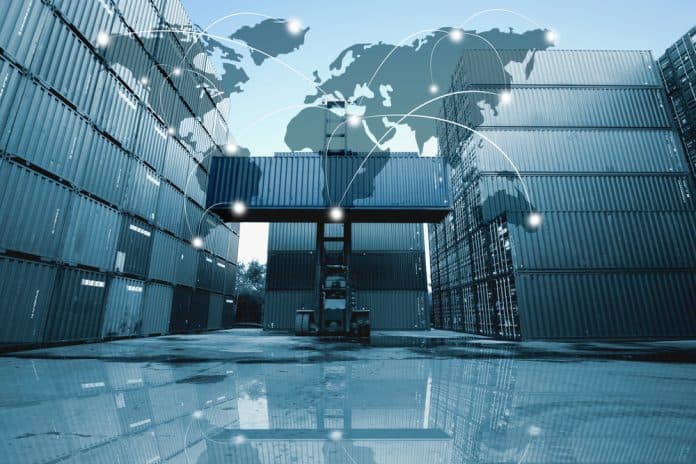We have witnessed the greatest transformation to logistics and the supply chain the industry has ever seen over the past few years. We’ve seen technological enhancements in the means of visibility, tracking and tracing, and managing everything under one platform.
Not long ago, there was still heavy physical paperwork involved in some certain shipment types – you had to produce physical paperwork and present it to authorities to get your shipments released. The industry that had been the slowest to embrace the change was at the forefront of adopting the latest technologies and advantages they had to offer, mainly as a result of once-in-a-generation events and black swans that occurred one after another.
The Change
The change came fast and swift, further accelerated by the Covid pandemic, and the investments that had been made a few years ago were perfectly timed for some startups to address the problems that effected everyone involved. Some TMS systems that dominated the market weren’t as advanced and connected as they are now, meaning companies that were able to hire programmers and invest in their own technologies were offering some visibility while much manual work still remained behind the scenes.
Considering the past two years have been extremely profitable in shipping overall, this resulted in an increased interest in the industry by venture capital firms. These are firms who have been pouring money into startups in the hopes of finding the next big thing. This is one of the biggest reasons for the current startup crowd which offers solutions anything from track and trace, real-time visibility, and AI applications to RPA solutions.
These solutions help to eliminate manual work, increase productivity, information flow, and visibility. Everyone involved is in the know about most of the details related to their supply chain and logistics, marking the large shift. Local fleet management, trucking, and online pricing was ahead of the game but the more challenging part, international shipping, has caught up and is almost as effective now. Over time, the cost of these solutions will only go down as it becomes more common to utilize them within companies and they will be commodified.
The Acceleration or Deceleration?
The pandemic, and the greatest supply chain crisis it brought along with it, made these tools and solutions more useful. Things that aren’t discussed and taken for granted, such as the regular flow of goods, became challenging and were the epicenter of high-level meetings. Otherwise, forget about when it berths, who used to care when the vessel sails and arrives as it mostly happened without major issues – most of the time?
Now that the overall situation is getting back to normal with vessel departures, arrivals, port congestion, and trucking power, the profitability level of the overall industry will come right back where it was before pandemic, and it is traditionally a very high-volume and low-profit industry. Will this mean a decreased interest from an investment perspective and will it result in a slowdown in overall innovation? Or, have we hit the plateau in the innovation side (the progress will never stop but do we have most of the things needed to make intelligent decisions by looking at the data provided by current solutions) as pretty much most of the solutions are more or less the same on the track and trace and customer-facing sides?
(the progress will never stop but do we have the most of the things needed to make intelligent decisions by looking at the provided data by the current solutions)
One thing that we cannot deny is that the recent developments have closed the gap between the larger freight forwarders and the small to midsize freight forwarders who have the means to invest in these areas. Larger freight forwarders who were capable of investing in their own IT had a competitive advantage where small to midsize companies couldn’t come close to or comprehend as it was extremely costly to try to build something closer to their then-current offerings. At this point, any company has access to similar if not the same technology which seemed impossible just a few years ago.
From the customer and BCO standpoints, these are great developments.
Conclusion
However, current differentiated solutions will soon be seen as normal. A few years ago when we conducted a customer survey, we asked: Would you rather prefer to deal with your key account manager to provide you with the shipment updates or would you prefer to utilize online solutions to check? 80% of the respondents answered they preferred a live key account manager.
When we circulated the same question last year, the answer was vice versa, as most preferred to have an access to an online platform where they can manage their shipments to compliment the live support they are receiving.
There is no denial in how far the industry has come in a matter of few years, or how much it has helped increase efficiency and transform the industry. However, it is certain that current offerings will be the status quo very soon. There are also ongoing issues with the solutions being offered as most of the data is patched from here and there as there is no one central data offering and sharing scheme from ports, carriers, and other players.
With inflation at its highest levels in years, import shipment numbers are going down, and with a weak rate market, cost is again becoming one of the biggest decision-making points for many BCOs. It doesn’t matter how much technology a freight forwarder can offer, if importers don’t see the long-awaited savings in their freight spent and if they don’t have capable and one point of contact, those great customer facing graphics won’t matter much. A combination of both the latest technology and human elements will be the winning formula today and in the future.




